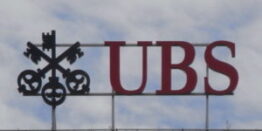

Reverse Convertible Notes are highly risky investments. Many of these securities have stated coupons, which entice unsophisticated investors, but that are a trap for investors, because stockbrokers and other investment professionals fail to disclose that when the price of the securities to which the reverse convertible note is linked, increase in value the investor’s return is limited to the stated coupon on the note. However, when the price of the security to which the note is linked, decreases in value, investors are left holding the bag.
Accordingly, investors’ upside potential is limited, but they bear 100% of the downside risk.
Recently, many brokerage firms have required customers to sign risk disclosure statements acknowledging the risk associated with these “notes,” often sold as otherwise conservative fixed income investments.
FINRA Issues Member Notice
In February 2010, FINRA issued Notice to Members 10-09, and subsequently issued an Investor Alert with respect to the sale of Reverse Convertible Notes. According to FINRA, “Reverse exchangeable securities, commonly called “reverse convertibles,” are popular structured products with retail investors, due in large part to the high yields they offer. However, reverse convertibles are complex investments that often involve terms, features and risks that can be difficult for retail investors and registered representatives to evaluate. Firms that sell reverse convertibles are reminded to ensure that their promotional materials or communications to the public regarding these products are fair and balanced, and do not understate the risks associated with them. Firms are also reminded to ensure that their registered representatives understand the risks, terms and costs associated with these products, and that they perform an adequate suitability analysis before recommending them to any customer.”
Subpoenas Issued
Last week, the Georgia Secretary of State Securities Division issued several subpoenas, requesting documents and information from Morgan Stanley, UBS, and Ameriprise Financial Inc. in its investigation of whether the firms violated the antifraud provisions of the state’s securities laws in connection with the sale of reverse convertibles notes.
The Secretary of State’s office sent subpoenas requesting data from each of the firms on how many reverse convertibles they sold in Georgia and the names of the investors, according to a person familiar with the matter, who spoke on condition of anonymity because the investigation is ongoing.
Reverse convertibles are short-term bonds generally sold to individuals that convert into stock if a company’s share price plummets. Georgia began examining the securities in May after lawyers received complaints from investors who asked if the state had any open investigations, Vincent Russo, general counsel and acting assistant securities commissioner for the Secretary of State’s office, said in a telephone interview last month.
“We received a generic subpoena seeking a list of Georgia- based clients who invested in certain types of products, some of which we do not offer. The subpoena does not name products or advisers,” Benjamin Pratt, a spokesman for Minneapolis-based Ameriprise, said in an e-mail.
“We have multiple investigations open with regard to the sale of reverse convertible notes, and will thoroughly review all evidence to ensure that Georgia investors are protected,” said Matt Carrothers, a spokesman for the Georgia Secretary of State’s office.
The SEC’s Examination
Today, the United stated Securities & Exchange Commission following its examination of 11 broker-dealers, found that the certain brokerage firms may have recommended these complex reverse convertible notes even though they were not suitable for their portfolios. The SEC also noted instances where broker-dealers charged prices that were too high, did not adequately disclose the risks and misrepresented the value of these securities on customer account statements.
The SEC recommends that broker-dealers improve disclosure about structured securities products, establish procedures and controls to prevent abuses in the secondary market and conduct specialized training for their representatives who sell the instruments.
According to the SEC, one of the riskiest structured products are reverse convertible notes (RCNs), which is a security with an embedded put option.
The SEC Report
According to the SEC Report, “There were numerous instances at these firms where the sale of RCNs did not appear to coincide with the customers’ stated investment objectives and financial profile,” the report states. “In addition, the firms solicited the purchase of RCNs without adequately disclosing to customers the material risks associated with investing in RCNs. Many of the customers experienced significant losses in these securities as the value of the underlying equity securities diminished.”
Carlo di Florio, director of the SEC Office of Compliance Inspections and Examinations, said the report is designed to help broker-dealers strengthen their compliance programs.
“Beyond this report, we are monitoring the way in which these products evolve, and are considering additional steps in the near future relating to structured securities products that may further bolster investor protection,” Mr. di Florio said in a statement.
If you have been sold reverse convertible notes as a result of misstatements and omissions of material fact regarding the features and risks associated with reverse convertible notes, and have suffered damages, contact us for a free, no obligation review of your claim.
Guiliano Law Group
Our practice is limited to the representation of investors. We accept representation on a contingent fee basis, meaning there is no cost to you unless we make a recovery for you. There is never any charge for a consultation or an evaluation of your claim. For more information, contact us at (877) SEC-ATTY.
For more information concerning common claims against stockbrokers and investment professionals, please visit us at securitiesarbitrations.com







